British PM Candidate Says All Options On Table If Iran Nuclear Deal Collapses
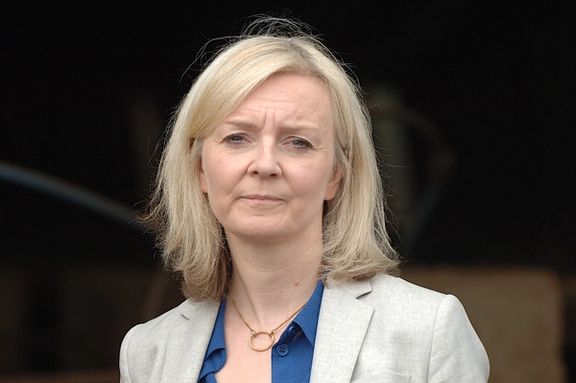
UK Foreign Secretary Liz Truss has said that she remains committed to standing up to Iranian hostility and their pursuit of nuclear weapons.

UK Foreign Secretary Liz Truss has said that she remains committed to standing up to Iranian hostility and their pursuit of nuclear weapons.
Truss, who is a candidate to becomes the next UK prime minister at next month’s Conservative Party leadership election, made the remarks in a letter to Conservative Friends of Israel parliamentary group, adding that “I have been clear that progress on the Joint Comprehensive Plan of Action is not moving fast enough and I assure you that if the JCPOA collapses, all options are on the table.”
Truss also Israel’s launch of Operation Breaking Dawn on targets of Iran-backed Islamic Jihad militant outfit in Gaza, with the Foreign Office saying, "The UK stands by Israel and its right to defend itself. We condemn terrorist groups firing at civilians and violence which has resulted in casualties on both sides. We call for a swift end to the violence."
The other Conservative candidate, Rishi Sunak, wrote in his letter to the pro-Israel group that he would seek “a new, strengthened nuclear deal that extends the sunset clauses, lengthens the breakout period and curtails Iran’s ballistic missile program. The credible threat of snapback sanctions, which has so far been missing from the negotiations, is the only way we can force Iran to seriously engage with these proposals.”
He added, “Iran’s quest for regional hegemony and the threat it poses to Israel concerns me deeply. We cannot allow Iran to possess a nuclear weapon and the UK and Israel must enhance our diplomatic, defense and intelligence cooperation to prevent this from happening.”
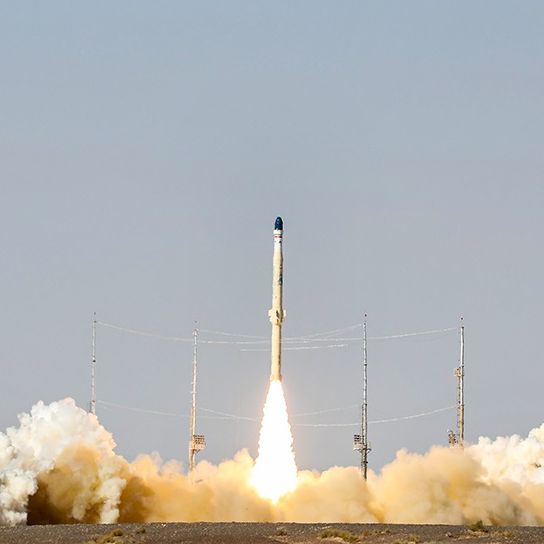
Iran has dismissed media reports that Russia intends to use the Iranian satellite Khayyam to assist the invasion of Ukraine before giving its control to the Islamic Republic.
The public relations office of Iran's Space Agency said Sunday the satellite will be fully operated and controlled by the Islamic Republic from inside Iran once launched into space by Russia.
It said that all the operations of the satellite, dubbed “Khayyam” after a 12th-century Persian polymath, will be controlled by Iranian engineers and researchers from a space base belonging to the Ministry of Information and Communications Technology immediately after reaching the orbit, adding that data management stations of the satellite are also in Iran.
Emphasizing that the satellite has no military function, the agency added that sending commands and receiving information from this satellite is done according to the encrypted algorithms that have already been embedded in it, and no third country has access to this information.
The agency made the remarks in reaction to a report by The Washington Post that quoted two Western security officials as saying that Moscow intends to use the satellite that it will launch on Iran's behalf for its own war effort in Ukraine before relinquishing its control to Tehran. They also said the satellite will greatly enhance Tehran’s ability to spy on military targets across the Middle East, including near-continuous monitoring of sensitive facilities in Israel and across the Persian Gulf.
Russia's Roscosmos space agency announced August 9 as the launch date of the satellite by a Russian Soyuz rocket from the Baikonur space station in Kazakhstan.

Iran’s Revolutionary Guard “very strongly condemn” Israel’s attacks in Gaza and vow full support to “Palestinian resistance”, the IRGC said in a statement Sunday.
Iran’s reactions to the latest flareup of violence between Israel and the Iran-backed Islamic Jihad militant group has so far been relatively low-key, as Tehran’s diplomats in Vienna are engaged in intense talks with the United States and Europe over reviving the 2015 nuclear agreement, the JCPOA.
Iran’s ruler Supreme Leader Ali Khamenei has yet to condemn Israel and threaten revenge, as some IRGC commanders have already done, and as he has done on past occasions.
The IRGC statement called Israel’s decision to launch attacks against the Islamic Jihad on Friday “a miscalculation” and a test to gauge the military prowess of the Palestinians in case of an all-out war. The statement went on to say that Israel and its supporters “will regret” the attacks on Gaza.
The Revolutionary Guard also condemned the United States and some Europeans and those Arab states which maintain “normal ties” with “the murderous Zionist regime.”
The Islamic Republic has been a full supporter of Islamic Jihad, although its relations with the other militant group in Gaza, the Hamas had had its ups and downs over the years.
The statement in the end called for the “liberation of al-Quds (Jerusalem) and the sacred land of Palestine.” It also called for the removal of “the cancerous tumor, Israel” from the world map.
Another unusual sign that Tehran might not be inclined to escalate its rhetoric against Israel was a meeting of foreign minister Hossein Amir-Abdollahian with agroup of parliamentarians on Sunday to answer questions on foreign relations.
In a report about the meeting in the government’s official news website IRNA there was no mention of the conflict in Gaza, while lawmakers asked questions on a series of less significant issues.
Equally notable was the absence of any discussion over the nuclear talks currently taking place in Vienna, while many Iranian members of parliament have repeatedly demanded explanations from the government over the fate of the negotiations.
Western and regional opponents of reviving the JCPOA argue that Iran’s ultimate aim is the destruction of Israel and an agreement that would eventually allow Tehran to legally obtain nuclear weapons while removing sanctions is dangerous.
Former US president Donald Trump left the JCPOA in 2018 arguing that the 2015 deal was a weak one and Iran also pursued aggressive policies in the region and supported “terrorism”.
But President Joe Biden disagreed with Trump’s decision and has vowed to restore that agreement, although after 16 months of multilateral talks a new agreement still remains elusive.
American and European diplomats returned to Vienna Thursday for a new round of talks with Iran although since last December they have been saying that time is running out if Iran fails to take an offer they have made.
If the current negotiations in Vienna succeed, Iran stands to gain tens of billions of dollars in the next couple of year by higher oil exports, access to frozen funds and more trade.
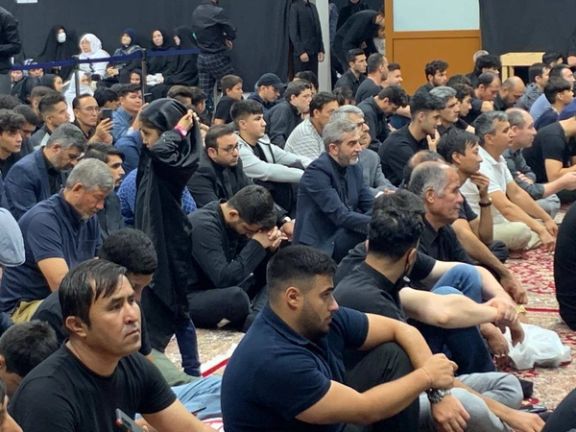
Members of Iran’s negotiating team who are in the Austrian capital for a last-ditch efforts to revive the 2015 nuclear deal have attended a Shiite religious mourning ceremony in Vienna.
The twitter account of the Islamic Republic’s embassy in Austria published photos of Tehran’s lead negotiator Ali Bagheri-Kani at the mourning ceremonies of the Islamic month of Muharram. The event was held at Vienna’s Islamic center of Imam Ali, a Shiite mosque.
The highlight of the month-long ceremonies of Muharram are the Days of Tasu'a and Ashura, the anniversary of the slaying of Shiite Imam Hussein and his 72 companions by his rivals to the leadership of Muslims. Ceremonies have been held for centuries in Iran and among Shiites in other countries, marking the event in the 680 AD battle of Karbala, in present-day Iraq, and have gained greater state support since the 1979 Islamic Revolution.
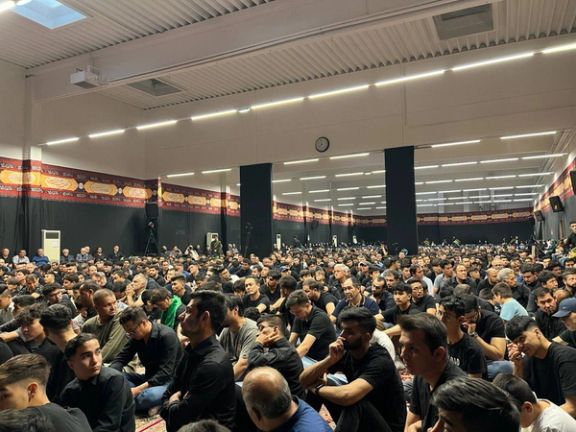
This round of the Vienna talks reportedly focus on a text circulated in late July by Josep Borrell, the European Union foreign policy chief, to bridge gaps between the United States and Iran over how the Joint Comprehensive Plan of Action -- or JCPOA -- can be revived. It is unclear how specific are proposals in Borrell’s text and how far he outlines a process.
European officials have presented a tough face to reporters gathered outside the Palais Coburg hotel in Vienna, insisting that the current talks will not be “reopening” negotiations, and urging Tehran not to make “unrealistic demands.”
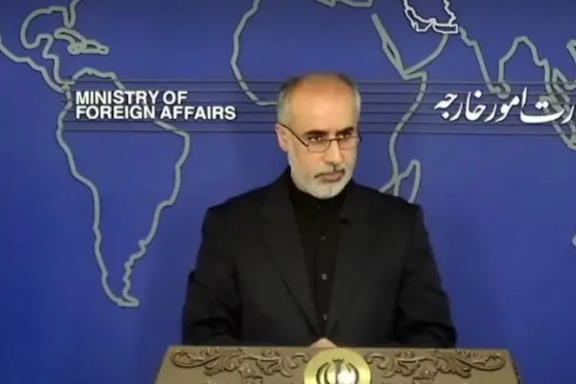
Tehran has criticized the Israeli airstrikes on Gaza that killed at least 10 members of Iran-backed Islamic Jihad militant group, as well as over 20 other people.
Iran’s Foreign Ministry Spokesman Nasser Kanaani on Sunday also accused the international community of silence about the death of civilians in Israel’s latest operation, codenamed Breaking Dawn, that started on Friday and according to the Israeli military could last for a week.
Iran's Supreme Leader has been still silent about the attacks as Tehran’s negotiators are trying to salvage the 2015 nuclear deal in Vienna.
About 600 rockets have been launched from Gaza towards Israel since the beginning of the operation but the death toll continues to rise from airstrikes in Gaza as most of the Palestinians’ rockets are intercepted by Israel’s Iron Dome defense system.
Six children and several Islamic Jihad fighters -- including leaders Khaled Mansour and Taysir al-Jabari -- are among the 32 Palestinians reported to have died. More than 200 people are also injured.
The latest bout of violence is the most serious flare-up between Israel and Gaza since an 11-day conflict in May 2021 that left more than 200 Palestinians and a dozen Israelis dead.
Israeli Prime Minister Yair Lapid also said Friday that Islamic Jihad is an Iranian proxy that wants to destroy Israel, noting that Israel has a zero-tolerance policy for any attempted attacks from Gaza.
During the week, Ziyad al-Nakhalah, the leader of Islamic Jihad -- a militant outfit designated a terrorist organization by the US, EU, and UK -- held meeting with several senior Iranian officials in Tehran.

An adviser to Iran’s nuclear negotiating team said on Saturday that some progress was made in Vienna, but issues remain and chances for an agreement is 50-50.
According to the Iranian government’s news website IRNA, Mohammad Marandi told the Arabic Al Mayadeen television, “I don’t know if we will reach an agreement, but the chance is 50 percent.” He stressed that the remaining issues are between Iran and the United States and “there are no differences with Europe or Russia.”
Earlier, the spokesman for Iran’s Atomic Energy Organization said that experts were discussing nuclear ‘safeguards’ issues during negotiations in Vienna.
Alighting from a car outside the Palais Coburg hotel, Behrouz Kamalvandi, responding to a question from Iran International, said “the flow [in talks] is not bad.” The spokesman’s comments were carried on the official Iranian news agency IRNA, which also cited an unnamed Iranian diplomat saying Friday that negotiations were now in their “decisive hours.”
Kamalvandi’s remarks relate to International Atomic Energy Agency (IAEA) enquiries into uranium traces found at sites not declared as nuclear-related. Iranian state media Saturday emphasized that Tehran demands the IAEA to drop the enquiries as part of reviving the 2015 Iran nuclear deal, the JCPOA (Joint Comprehensive Plan of Action).
The issue, which could derail the European-brokered talks in the Austrian capital aimed at restoring the JCPOA, shows intricate interplay between ‘political’ and ‘technical’ factors.
From a ‘technical’ viewpoint, IAEA head Rafael Mariano Grossi has expressed dissatisfaction with Iran’s explanations of potential military dimensions suggested by the uranium traces, which relate to sites used before 2003. Grossi has conducted enquiries as part of Iran’s ‘safeguards’ commitments under the Nuclear Non-Proliferation Treaty – which are separate from the JCPOA.
‘Wrecking ball’
But Iranian state media Saturday quoted Mohammad Jamshidi, deputy head of President Ebrahim Raisi’s office, saying Raisi had in telephone calls with the presidents of China, France, and Russia expressed a “firm position…that a final agreement [on reviving the JCPOA] could be reached only when safeguards claims were resolved and closed.”
This appeared to refer to the uranium traces Marandi Thursday called the IAEA probe a “wrecking ball” for the talks. Iran argues the IAEA in 2015 concluded its investigations of past nuclear work, and reopened the file – discovering the uranium traces – only in response to allegations made by Israel.
While France, Germany, the United Kingdom, and the United States have argued that IAEA ‘technical’ work on safeguards is independent of the JCPOA, they successfully moved a resolution at the IAEA governing board in June censuring Iran over failing to satisfy the agency.
The Vienna talks reportedly focus on a text circulated in late July by Josep Borrell, the European Union foreign policy chief, to bridge gaps between the United States and Iran over how the JCPOA can be revived. It is unclear how specific are proposals in Borrell’s text and how far he outlines a process.
Tough face
European officials have presented a tough face to reporters gathered outside the Palais Coburg hotel in Vienna, insisting that the current talks will not be “reopening” negotiations, and urging Tehran not to make “unrealistic demands.”
Iran’s foreign ministry Saturday framed the talks as Iran responding positively to Borrell’s text. It quoted Foreign Minister Hossein Amir-Abdollahian telling Wang Yi, his Chinese counterpart, by telephone that “the US should show a pragmatic response to Iran’s constructive proposals [in response to Borrell].” It has been widely reported that Iran has suggested it could drop its demand that the US remove the Iranian Revolutionary Guard Corps (IRGC) from its list of ‘foreign terrorist organizations,’ which was earlier seen as a likely deal-blocker.
Mikhail Ulyanov, Russia’s IAEA ambassador, tweeted Saturday evening that despite “a few remaining differences the negotiators have all the chances to fulfil their task successfully.”